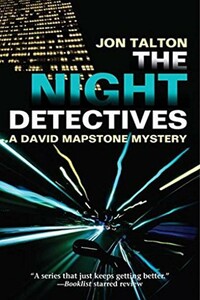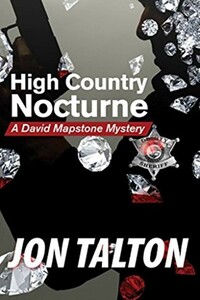If a person turned up in a suspicious death, their lover was always the prime suspect, and that bias on the part of the detectives rarely turned out to be wrong. When couples didn’t fight about sex and jealousy, they fought about money. Sometimes a slap became a kick became a bullet. Cops themselves were no different. They offed their exes and then ate their guns. Cops also slept with a lot of other cops’ spouses or girlfriends or boyfriends, and then things went lethally bad.
Most victims and suspects came from the same socioeconomic class, and, in a city like Cincinnati, from the same race. Most were black, living in the poor and forgotten neighborhoods overrun by drugs and offering no jobs. The cops knew the suspects and victims already. In most cases, the homicide had been only a matter of time.
Hold-ups went wrong. Some kid with no impulse control wanted to play gangsta. He thought pulling the trigger was no different than what happens in a video game. Concepts like mortality, forever…forget it. It wasn’t wired in their brains these days. Try to get ahead of it and the ACLU and the ministers and all the do-gooders who never spent a night in the ghetto would be all over you. But the same things happened in the white-trash neighborhoods like Lower Price Hill. The really lurid stuff occurred out in the suburbs, but don’t try telling that to the average Cincinnatian.
Cops burned out of homicide. Not because of blood or gore or being outwitted by criminal masterminds. No, because of its monotony: The same easy suspects, the same filthy apartments, and same kinds of people doing the killing. The pressure from the brass to clear cases. And the paperwork. And that forever part, dead, gone completely… if they let themselves think about it too long.
The younger cops didn’t know much about real investigations because DNA solved everything, or so nearly everyone was convinced. The really gifted homicide investigators were mostly retired or close to it. Then, the endless time with the D.A. and in court, and a sentence that never seemed like justice. Traffic division was much the same but the stakes weren’t as high.
It’s not that serial killers weren’t out there or that some homicides weren’t true mysteries. It’s not even that criminal masterminds didn’t exist. A person could get away with it, if he was really careful, disciplined, and, especially, didn’t know the victim. But that wasn’t the day-in, day-out of working homicide.
The truth is, most murder is boring. Except when it’s not.
The murders caused the campus to go on alert. Classes were canceled for the day, and that included Cheryl Beth’s meeting. Students were told to stay in their dorms, faculty to remain in their offices. Cheryl Beth’s office was at the Hamilton campus, so she walked into town, past the cordon of police at the university’s entrance, and ordered coffee at a bagel shop on High Street. An Enquirer was sitting on the table, and she absently thumbed through it. “Couple arrested after flagging down cop,” a headline on an inside page read.
It went on, “A couple who flagged down police to report that they had been robbed at gunpoint early Saturday evening got more than a sympathetic ear from a Cincinnati police officer. According to Detective Will Borders, Karole and Stephen Sweigert, both 27 and from Cleves, were arrested because the couple drove from Cleves to purchase drugs on McKeone Avenue with their three children in tow.” Cheryl Beth drummed her fingers on the newsprint and sipped the coffee, scalding the inside of her mouth. She popped the lid off to let it cool.
When her cell phone rang, it showed a number she didn’t recognize. She keyed it to voice mail and drank the coffee, re-reading the news article. In a moment, the message icon appeared and she listened to a male voice, exuding authority. The coffee lost its taste.
The voice identified itself as Detective Hank Brooks of the Oxford Police Department. He took the time to spell his last name. Would she please come to the station as soon as possible? He gave her the address and his number. “Please come to the station, ma’am,” he reiterated. As a nurse, she had been calling women ma’am for her entire career, and came from a small town where “sirring” and “ma’amming” were as expected as church attendance. But now when she heard it, she felt old. The pretty young woman behind the counter had called her that when she had poured the coffee. Ma’am. It was a vain thought, she knew. Hearing it from Detective Hank Brooks-B-r-o-o-k-s-rekindled the dread in her stomach.




